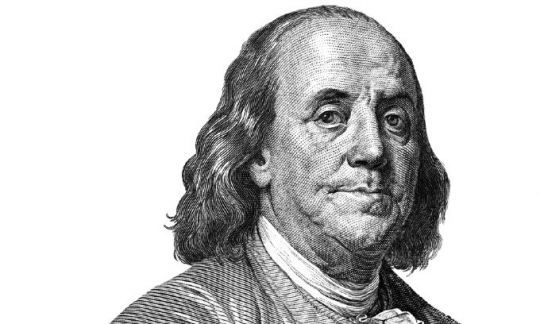5 money quotes that could help you save or make up to $113,544

With the cost of living skyrocketing, how do you source some sneaky savings? Canstar has combed through some of the greatest money mantras in history and come up with five that can help you save (or make) up to $113,544. All you need to do is take action.
1. “Compound interest is the eighth wonder of the world. He who understands it; earns it. He who doesn’t, pays it.”
Who said it?
Albert Einstein is said to be the man behind these words. With a name that’s become shorthand for genius, Einstein is regarded as one of history’s greatest thinkers. A physicist and a mathematician, his theories of relativity led to new ways of looking at time, space, matter, energy and gravity.
What does it mean?
When we save regularly we experience the magic of compound interest working in our favour. We earn interest on our interest and our savings grow at a faster rate.
Check out this hypothetical example: Chloe saves $500 a month from the age of 18 and she keeps it up for 10 years, saving $60,000 in total. Assuming her investment return is 5%pa, by the age of 48 her balance would be $211,490.
Paul saves the same $500 a month but starts from the age of 28. He saves for 20 years, putting away $120,000 in total. Assuming his investment return is 5%pa, by the age of 48 his balance would be $206,373.
Thanks to the magic of compounding interest Chloe’s balance is $5,117 higher than Paul’s. And Chloe only contributed $60,000 of her own money – half the amount Paul did. The compound interest did most of the heavy lifting.
Power of compound interest
← Mobile/tablet users, scroll sideways to view full table →
| Total contribution | Years of contribution | Starting age | Balance by age 48 | |
|---|---|---|---|---|
| Chloe | $60,000 | 10 | 18 | $211,490 |
| Paul | $120,000 | 20 | 28 | $206,373 |
| Difference | $5,117 | |||
Source: www.canstar.com.au – 10/06/2022. Calculations assume monthly contributions of $500 per month as specified in the table, earning 5%pa.
“That same financial firepower can backfire on us if we are in debt. We can end up paying interest on the interest charged to our credit card if we don’t pay off the balance in full,” said Canstar’s Editor-at-Large Effie Zahos. “In that situation, compound interest can take us on a downward spiral that leads us deeper into debt.”
Potential saving/earnings: $65,117
2. “Beware of little expenses; a small leak will sink a great ship.”
Who said it?
Benjamin Franklin. A leading figure in America’s early history, Franklin helped draft the Declaration of Independence and became one of its signatories.
What does it mean?
There are plenty of expenses that appear harmless until you tally them up over the course of a month or a year. Think streaming services, coffees, takeaways, snacks bought on the run at convenience stores or petrol stations, online shopping after a night out, late fees, subscriptions and so on.
Let’s look at the impact these could have. Imagine you’re aiming to save $500 a month. In one year you’ll accumulate $6,103 and over 10 years it would add up to $70,528. This assumes you’re earning interest of 3.13%pa.
Small expenses can whittle away at those savings. Spending $4.50 on a takeaway coffee five days a week, paying $17 a month for one streaming service and making one impulse buy of $5 a week adds up to $127 per month.
Over a year those habits would drain $1,550 from your savings, leaving $4,553. Over 10 years they would drain $17,914 from your savings, leaving $52,614.
Impact small expenses can have over time
← Mobile/tablet users, scroll sideways to view full table →
| Balance after 1 yr | Balance after 10 yrs | |
|---|---|---|
| Base scenario – $500 saved per month | $6,103 | $70,528 |
| Expenses scenario – $500 less 1 coffee per weekday, 1 streaming service, 1 impulse buy of $5 per week | $4,553 | $52,614 |
| Difference | $1,550 | $17,914 |
Source: www.canstar.com.au – 10/06/2022. Calculations assume monthly contributions of $500 per month, less expenses totalling $127 per month for the expenses scenario. Earnings calculations assume an interest rate of 3.13% (10-year average highest bonus savings account rate for accounts in Canstar’s database), with interest paid monthly.
“Those seemingly little leaks can be enough to shipwreck your household budget and, in turn, your financial goals,” said Ms Zahos.
Potential saving: $17,914
3. “How many millionaires do you know who have become wealthy by investing in savings accounts? I rest my case.”
Who said it?
Robert G. Allen. He is an investment adviser and author of several best-selling personal finance books including Multiple Streams of Income: How to Generate a Lifetime of Unlimited Wealth.
What does it mean?
Savings accounts can be great to get you into the regular discipline of setting money aside. They score high for safety – savings of up to $250,000 are backed by the government guarantee. Plus, you can withdraw your money easily.
But they are not known for being a great money-spinner. Putting aside $100 per week at an average interest rate of 3.13% would earn $8,994 over 10 years.
If you want to earn the bigger bucks you may be better off going for growth. Investing $100 per week into an exchange traded fund (ETF) tracking the ASX 200 index can lead to a small fortune over time. With an average return of 9.74%pa over 10 years it would deliver $25,683 – a whopping $16,689 more than the savings account. Of course, past returns are no guarantee of future performance.
Weekly contributions of $100 into a savings account vs ETF over 10 years
← Mobile/tablet users, scroll sideways to view full table →
| Average annual return | Total contributions | Total earnings | |
|---|---|---|---|
| Savings Account | 3.13% | $52,000 | $8,994 |
| ETF (ASX 200) | 9.74% | $25,683 | |
| Difference | -$16,689 | ||
Source: www.canstar.com.au – 10/06/2022. Savings rate based on the 10-year average highest bonus savings rate for accounts in Canstar’s database (effective to 9/06/2022). Savings calculations assume interest is calculated daily and paid monthly. ETF annual return based on the average annual total net return of the ASX 200 (effective to 9/06/2022). ETF calculations take into brokerage and account keeping fees which are based on a sample of micro-investing platforms, totalling $416 and $449 over the investment period, respectively. Savings and ETF calculations assume the contributions are made at the start of the month.
“Naturally, if the sharemarket takes a tumble your savings could shrink in size. So you have to be prepared to stomach the ups and downs,” warned Ms Zahos.
Plus, the cost of putting your money into shares or an ETF is likely to be higher than the fees on a savings account.
Potential earnings: $16,689
4. “Never spend your money before you have it.”
Who said it?
Thomas Jefferson. He was the third President of the United States, holding office from 1801 to 1809.
What does it mean?
Anyone with an overloaded credit card will understand this mantra. Take the average balance of $3,887 on a credit card accruing interest at the average annual interest rate of 16.9%. If the credit card isn’t being paid off in full each month, you’ll be feeling the pain of interest charges bumping up your balance each month.
The ouch factor rises another notch if you’re only managing to make the minimum monthly repayment of 2% or $20 (whichever is greater) used in Canstar’s hypothetical example. Then it would take 25 years and six months to pay off the $3,887 balance and the total interest paid would be $7,300.
Make the minimum repayment plus $100 each month and it would only take two years and 10 months to pay it off and the total interest paid would drop to $940.
Up that to the minimum repayment plus $200 each month and it would be paid off in one year and seven months and the total interest paid would be $518.
The potential cost of credit card debt
← Mobile/tablet users, scroll sideways to view full table →
| Based on average balance accruing interest of $3,887 | Minimum repayments | Minimum repayments + $100 | Minimum repayments + $200 |
|---|---|---|---|
| Time to repay | 25 years 6 months | 2 year 10 months | 1 years 7 months |
| Total interest paid | $7,300 | $940 | $518 |
Source: www.canstar.com.au – 10/06/2022. Average credit card balance accruing interest based on the RBA Credit and Charge Card Statistics, Apr-2022, and assumes 36% of personal credit card accounts are revolving a balance and therefore accruing interest, based on the Canstar 2021 Customer Satisfaction Survey (n= 5290). Calculations based on the average purchase rate for personal, unsecured credit cards of 16.90% and median minimum repayments of 2.00% or $20.00 (whichever is greater). Calculations do not take into account the impact of any fees.
Potential saving: $7,300
5. “Opportunities come infrequently. When it rains gold, put out the bucket, not the thimble.”
Who said it?
Warren Buffett. One of the most successful investors in the world, the billionaire was the world’s fifth wealthiest person as at June 2022.
What does it mean?
One of the secrets to successful investing is to swim against the current of conventional thinking.
Take someone who invested $10,000 when the ASX 200 hit a market low on 23 March 2020. They would have seen a 65.24% rise in their investment by 9 June 2022, meaning their $10,000 would have turned into a sweet $16,524.
Growth of $10,000 invested in the ASX 200 at the market low in 2020
← Mobile/tablet users, scroll sideways to view full table →
| S&P/ASX 200 Net Total Return Index | |
|---|---|
| Lowest point (23/03/2020) | 47,230.86 |
| Latest (9/06/2022) | 78,043.83 |
| % Change | 65.24% |
| Current value of $10k invested at lowest point | $16,524 |
Source: www.canstar.com.au. Prepared on 10/06/2022. Based on the S&P/ASX 200 Net Total Return Index. Does not take into account any fees that may apply. Actual returns and fees will vary by investment product. The value of your investment will rise and fall over time. Past performance is not a reliable indicator of future performance.
Potential earnings: $6,524
Cover image source: Ruslan Lytvyn/Shutterstock.com
This article was reviewed by our Editorial Campaigns Manager Maria Bekiaris before it was updated, as part of our fact-checking process.

- 1. “Compound interest is the eighth wonder of the world. He who understands it; earns it. He who doesn’t, pays it.”
- 2. “Beware of little expenses; a small leak will sink a great ship.”
- 3. “How many millionaires do you know who have become wealthy by investing in savings accounts? I rest my case.”
- 4. “Never spend your money before you have it.”
- 5. “Opportunities come infrequently. When it rains gold, put out the bucket, not the thimble.”





